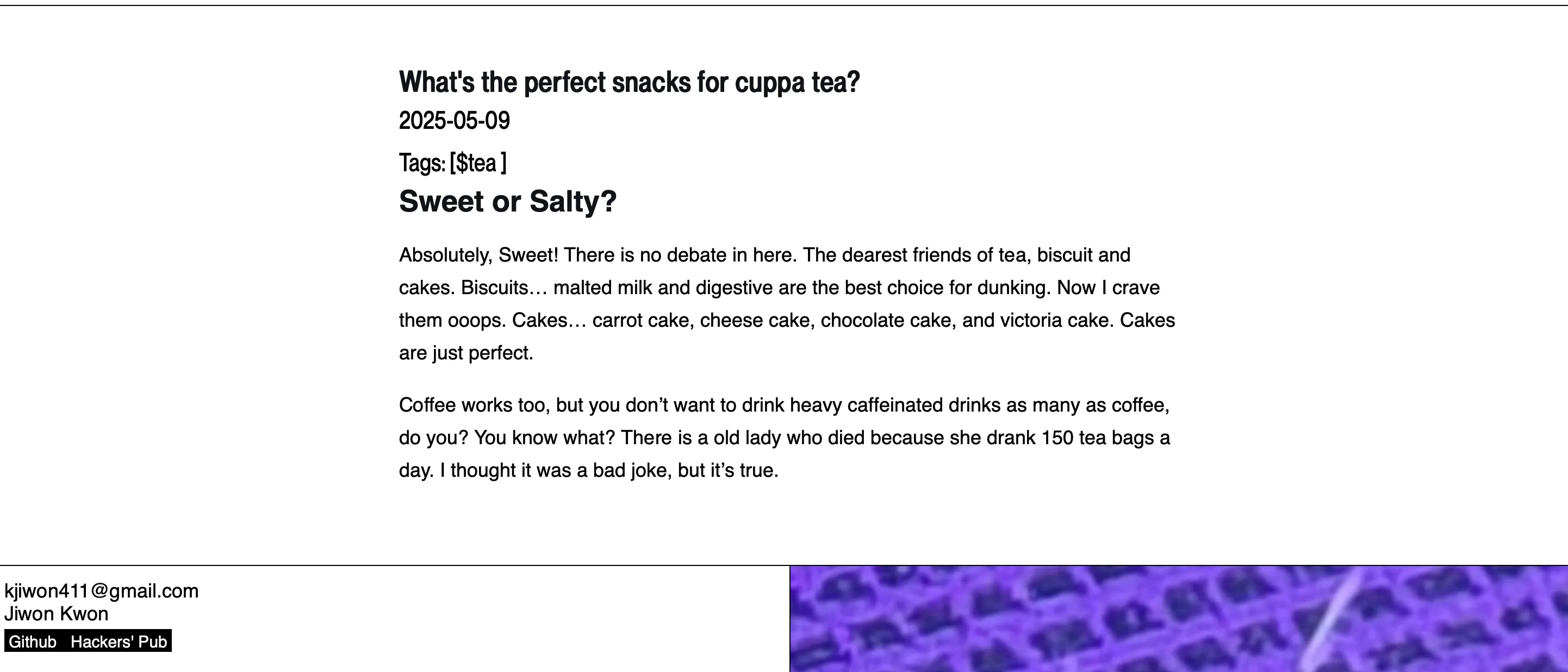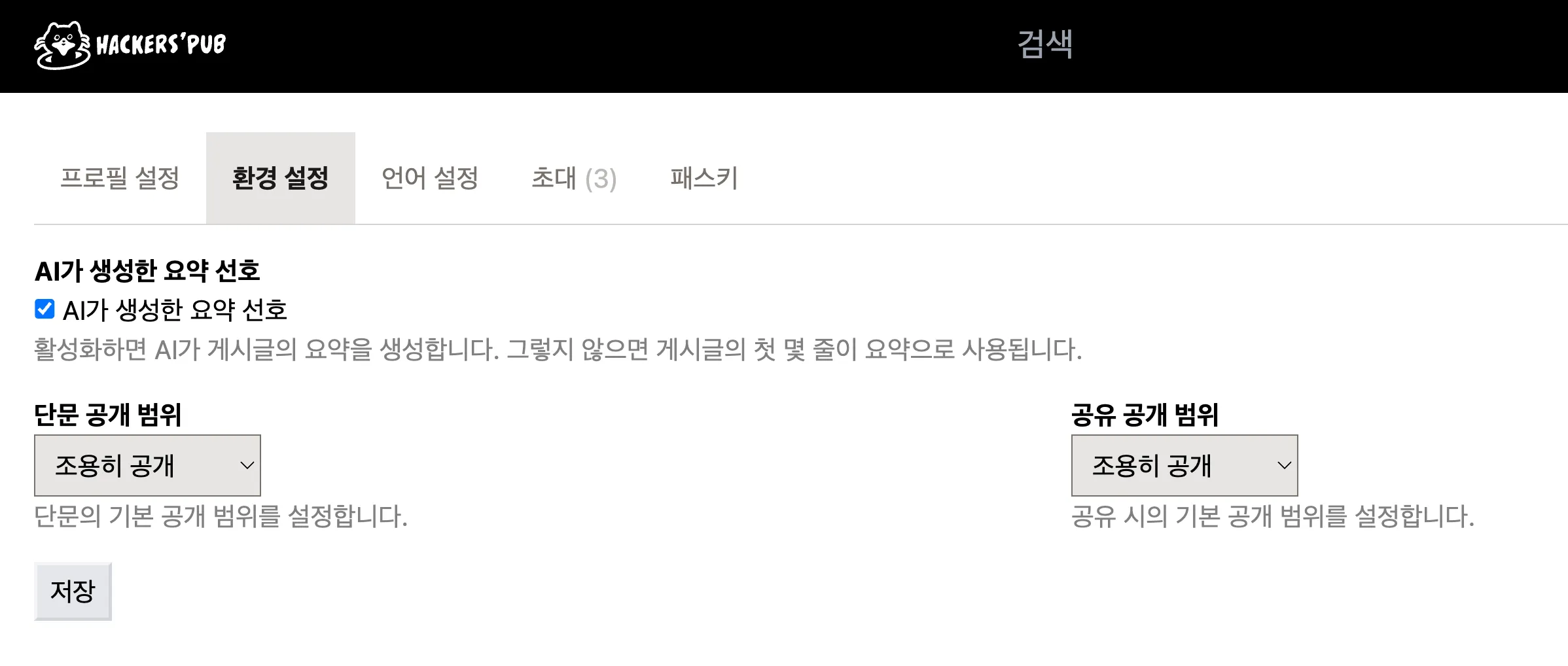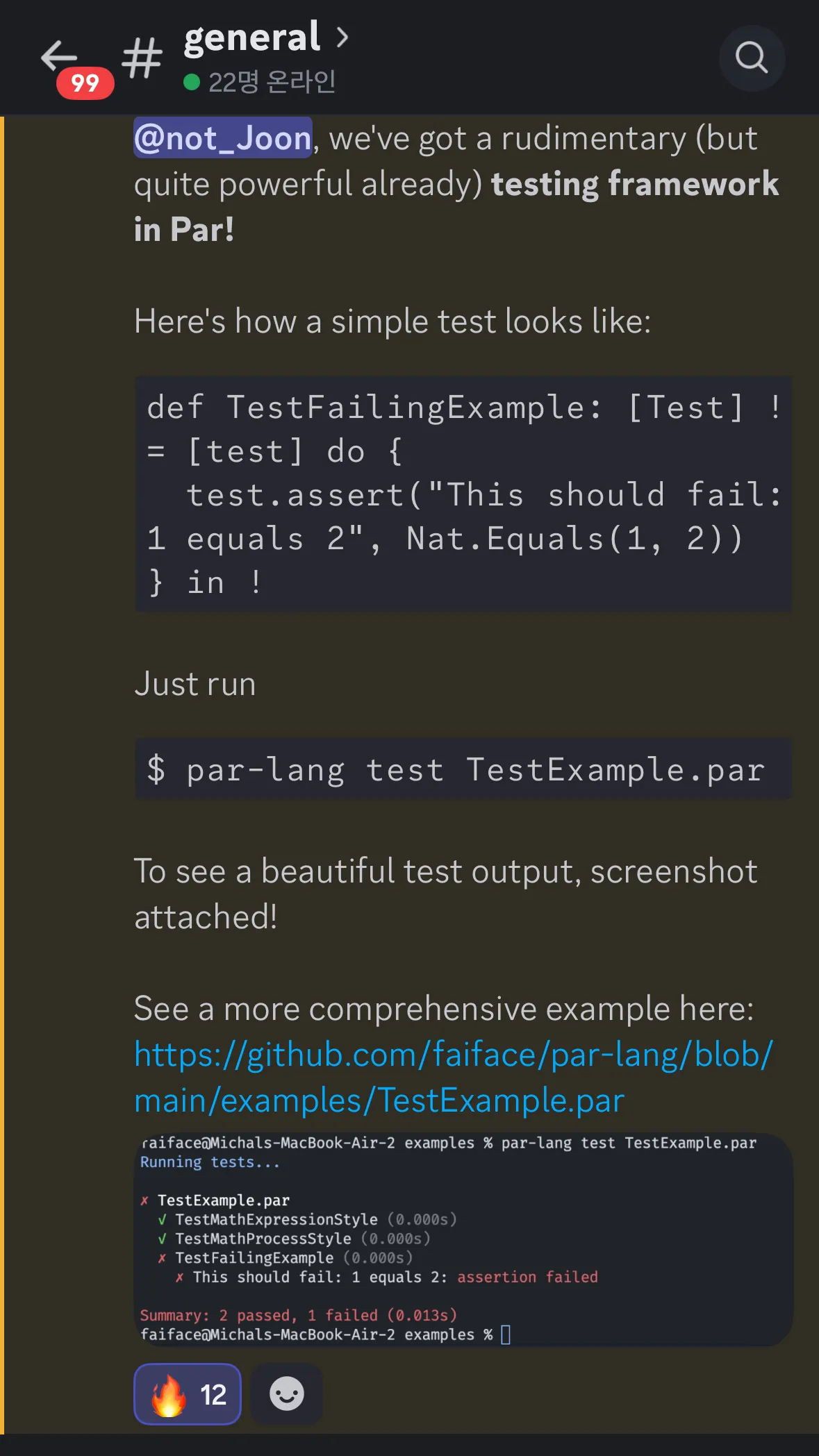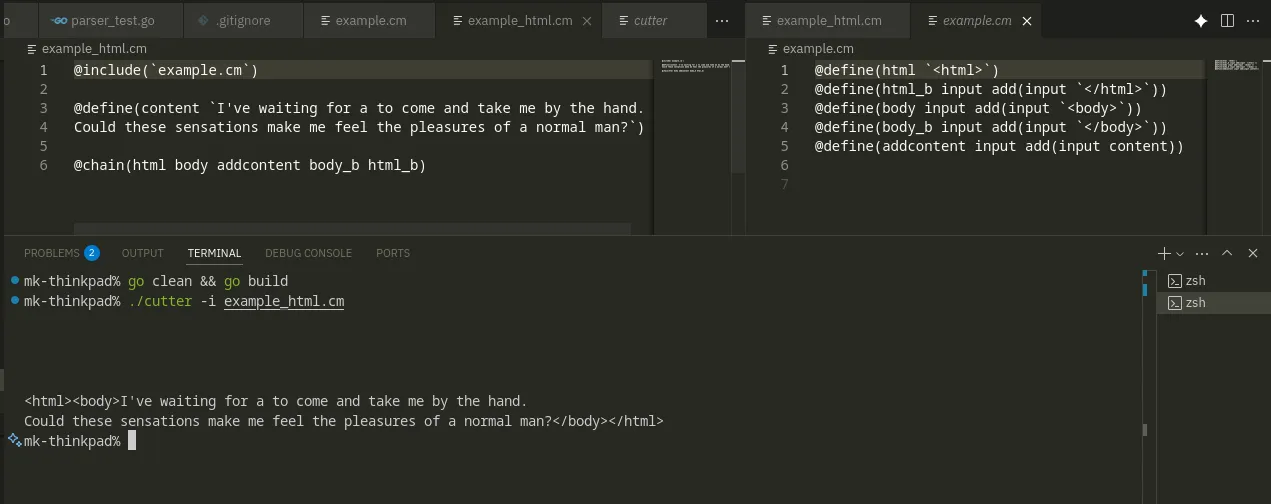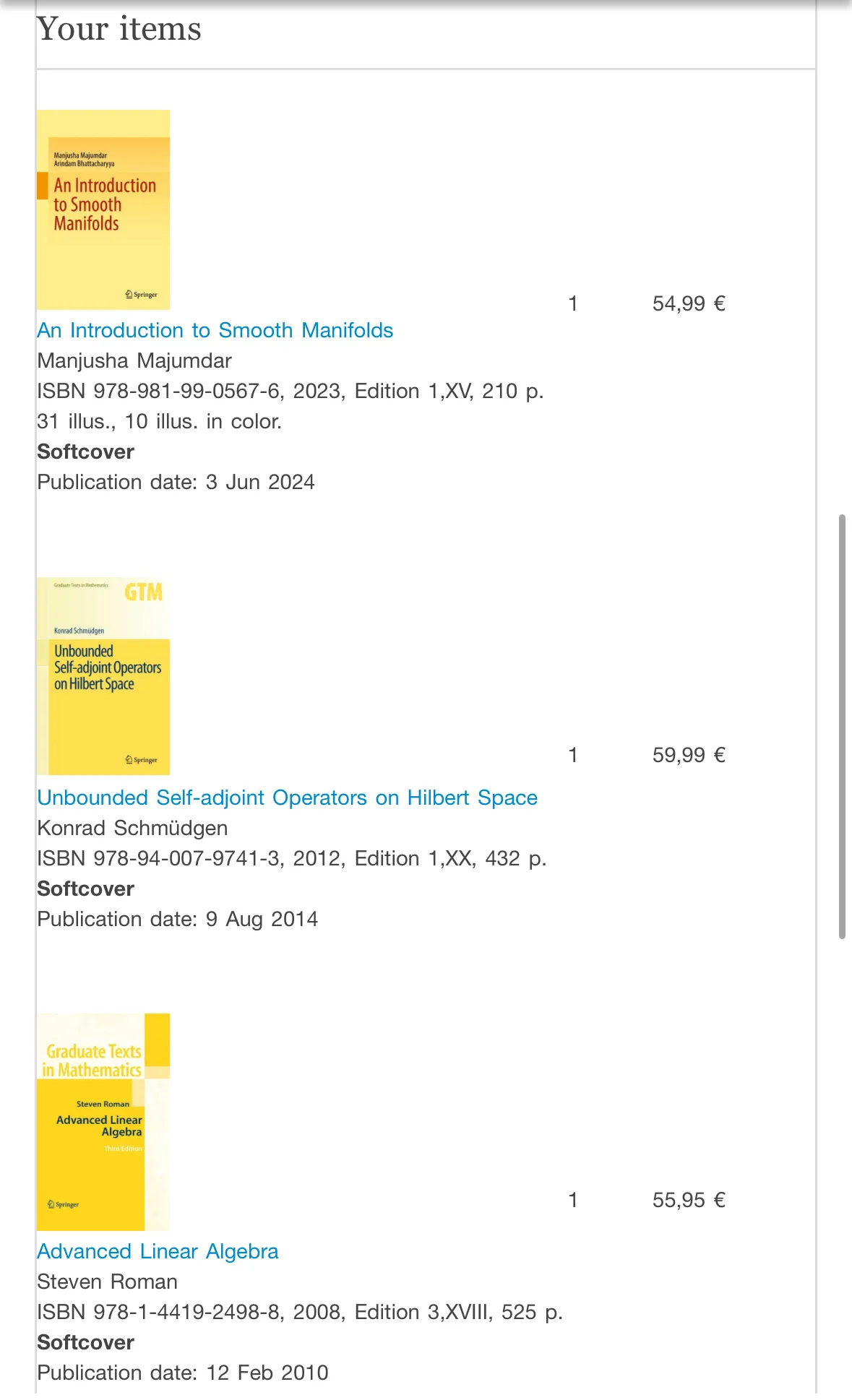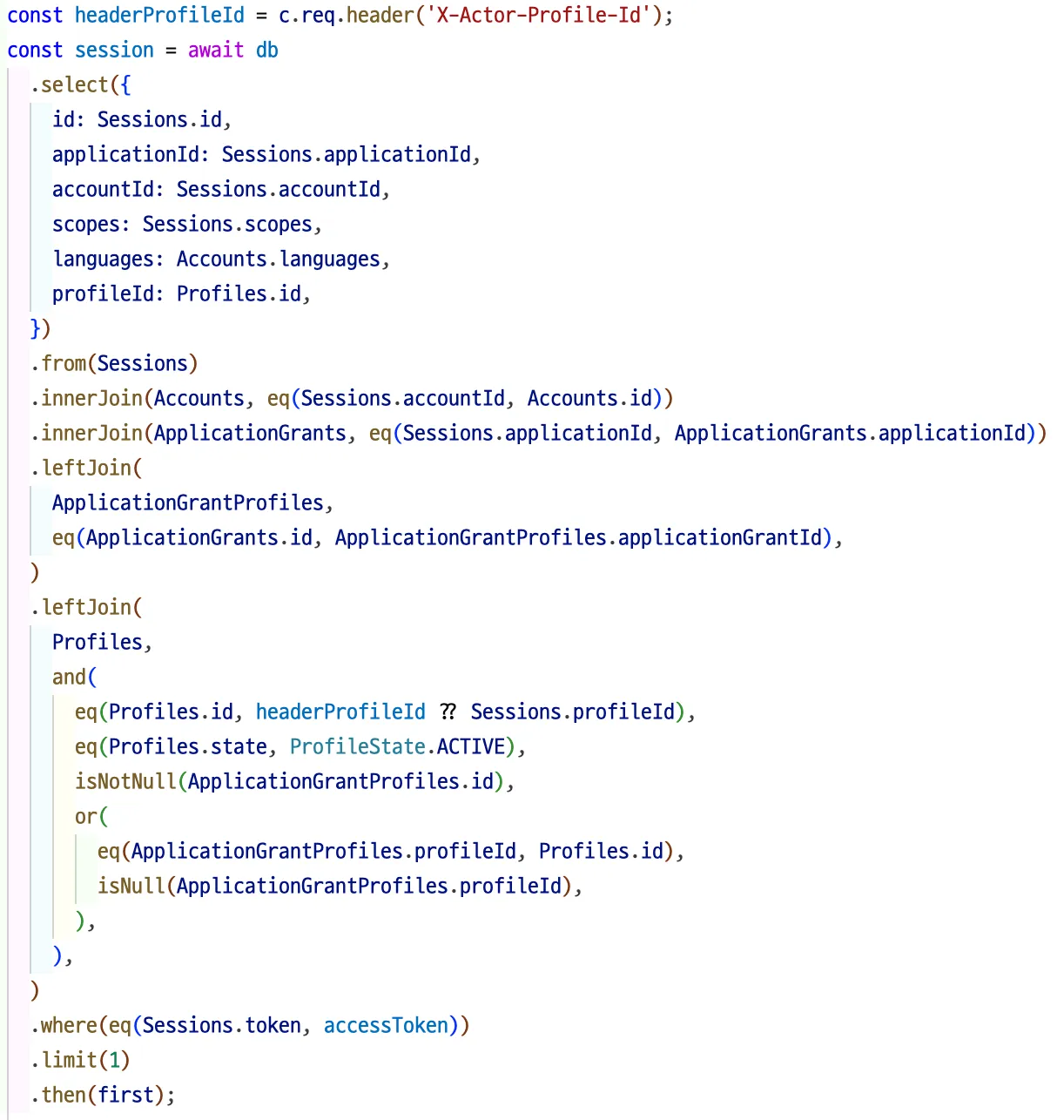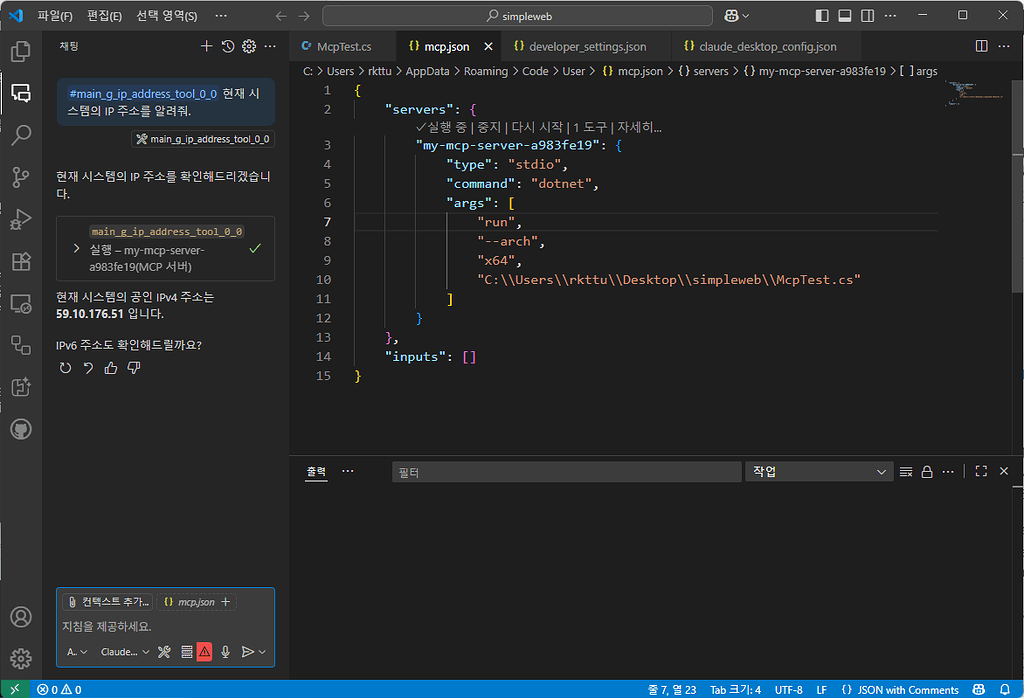오랜만에 들어와보니 뭔가 영어가 굉장히 많아졌다. 커뮤니티도 예전보다 훨씬 활성화된 것 같다
洪 民憙 (Hong Minhee)
@hongminhee@hackers.pub · 1004 following · 707 followers
Hi, I'm who's behind Fedify, Hollo, BotKit, and this website, Hackers' Pub! My main account is at ![]() @hongminhee洪 民憙 (Hong Minhee)
@hongminhee洪 民憙 (Hong Minhee)  .
.
Fedify, Hollo, BotKit, 그리고 보고 계신 이 사이트 Hackers' Pub을 만들고 있습니다. 제 메인 계정은: ![]() @hongminhee洪 民憙 (Hong Minhee)
@hongminhee洪 民憙 (Hong Minhee)  .
.
Fedify、Hollo、BotKit、そしてこのサイト、Hackers' Pubを作っています。私のメインアカウントは「![]() @hongminhee洪 民憙 (Hong Minhee)
@hongminhee洪 民憙 (Hong Minhee)  」に。
」に。
Website
- hongminhee.org
GitHub
- @dahlia
Hollo
- @hongminhee@hollo.social
DEV
- @hongminhee
velog
- @hongminhee
Qiita
- @hongminhee
Zenn
- @hongminhee
Matrix
- @hongminhee:matrix.org
X
- @hongminhee
역시 수제코딩을 해야 감각이 늘고 리터러시가 생긴다..... 뇌에 힘주고 해야하는건 수제코딩..
![]() @kodingwarriorJaeyeol Lee 사람이 쓰는 프로그램 사람 손으로 만들자 - 수제코딩장려운동
@kodingwarriorJaeyeol Lee 사람이 쓰는 프로그램 사람 손으로 만들자 - 수제코딩장려운동
ひとまずActivityPubClientはapkitに入れておく (後で分離できるようにclient => apkitの依存性は含まないようにする)
오늘 튜사 오시는분 계신가요?
![]() @bglbgl gwyng 앗… 저랑
@bglbgl gwyng 앗… 저랑 ![]() @kodingwarriorJaeyeol Lee 님은 요새 주중에는 튜사에 거의 상주하는데 주말에는 못 가고 있어요. 😭
@kodingwarriorJaeyeol Lee 님은 요새 주중에는 튜사에 거의 상주하는데 주말에는 못 가고 있어요. 😭
Lobsters는 인터뷰도 하는구나
Lobsters Interview with Matklad https://lobste.rs/s/ntruuu #person
Re-activate the blog building. What do we think o3o ?
foo buzz bar
![]() @tochu_cha杜仲茶 Hackers' Pubへようこそ!
@tochu_cha杜仲茶 Hackers' Pubへようこそ!
foo buzz bar
해커스펍에선 안되던 기능 바로 가져와버리기~
Hackers' Pub의 환경 설정에 “단문 공개 범위” 및 “공유 공개 범위” 설정 항목이 추가되었습니다. 기여해주신 ![]() @nebuletoHaze 님께 감사드립니다!
@nebuletoHaze 님께 감사드립니다!
投稿(Note)と記事(Article)の両方でMarkdownをサポートしているだけでなく、シンタックスハイライトとTeX数式にも対応しているという点で、[1]Hackers' Pubはフェディバースで最もソフトウェアプログラマーに適したプラットフォームであると自負しております。
そんな皆さんのために、Hackers' Pubの招待状を共有します。(笑)
ちなみに、Hackers' Pubはかなり多様なMarkdown拡張構文をサポートしています。 ↩︎
단문(Note)과 긴 게시글(Article) 모두에서 Markdown을 지원할 뿐만 아니라 구문강조와 TeX 수식을 지원한다는 점에서 Hackers' Pub은 연합우주에서 가장 소프트웨어 프로그래머가 쓰기에 적합한 플랫폼이라고 자부합니다.
단문(Note)과 긴 게시글(Article) 모두에서 Markdown을 지원할 뿐만 아니라 구문강조와 TeX 수식을 지원한다는 점에서 Hackers' Pub은 연합우주에서 가장 소프트웨어 프로그래머가 쓰기에 적합한 플랫폼이라고 자부합니다.
Open source projects I'm currently maintaining:
- Fedify, an ActivityPub server framework for TypeScript
- Hollo, an ActivityPub-enabled single-user microblogging software
- BotKit, an ActivityPub bot framework for TypeScript
- LogTape, a modern logging library for TypeScript
- Upyo, a simple and modern email sending library for TypeScript
- Optique, a type-safe combinatorial CLI parser for TypeScript
머지가 되었다는 소식
논문을 방금 제출했는데 접수 번호를 팝업으로만 띄워주고 메일로는 아무 연락이 없다… 아직 제출 기한 내 이기도 하고 다시 검토하다 보니 한줄 잘못 엔터친 부분도 수정해야 하는데 ㅠㅠ
僕がActivityPubを始めた理由 - Yaruki NotFound
AI 에이전트와 도구를 결합하는 방법 중 하나인 "재귀적 신경신호 제어 역전(recursive neuro-symbolic IoC) 패턴"에 대해 정리했다. 이름이 너무 거창해서 마음에 쏙 들지는 않지만 정확한 명명이라서 그냥 그렇게 정했다. https://wiki.g15e.com/pages/Recursive Neuro-Symbloic Inversion of Control
GitHub Classroom을 사용해서 온라인 저지 시스템을 구축해본 후기입니다.
https://theeluwin.github.io/article/online-judge-with-github-classroom/
실제로 사용하고 싶었으나, 제 결론은... 안쓰는쪽으로 났습니다. 이유는 결국, 문제 출제하는 UI/UX가 좋지 않다는 것입니다. 제가 고생을 덜 해야만 하니까요(,,,,) 암튼 GitHub Classroom이 문서도 제대로 안되어있기도 하고, 기능이 아직 좀 오락가락 합니다. 없는 기능도 너무 많구요. 제 검토를 참고해주십시오, , ,
![]() @hongminhee洪 民憙 (Hong Minhee) 답장이 엄청나게 빠르시군요. 덕분에 호기심을 빠르게 풀었네요. 감사합니다! 😊
개발에 집중된 주제의 커뮤니티인 게 너무 매력적이어서 마스토돈보다 더 자주 들어올 것 같습니다!
@hongminhee洪 民憙 (Hong Minhee) 답장이 엄청나게 빠르시군요. 덕분에 호기심을 빠르게 풀었네요. 감사합니다! 😊
개발에 집중된 주제의 커뮤니티인 게 너무 매력적이어서 마스토돈보다 더 자주 들어올 것 같습니다!
![]() @yg1ee밀 감사합니다! 자주 들어와서 얘기 나눠요!
@yg1ee밀 감사합니다! 자주 들어와서 얘기 나눠요!
해커스펍 너무 낯설고 익숙하지가 않은데 이거는 마스토돈 프로토콜(?)이 아닌 건가? 마스토돈 클라이언트에서 로그인해서 쓰고 싶은데.
![]() @yg1ee밀 네, Mastodon API를 구현하지 않고 있어요. 하지만 Mastodon 서버과 소통은 가능하고요. 기술적으로는 Mastodon 서버끼리는 ActivityPub으로 소통하는데, Hackers' Pub도 ActivityPub을 구현하고 있기 때문에 Mastodon 서버들과 소통이 가능합니다. Mastodon 클라이언트 앱이 Mastodon 서버와 통신할 때는 Mastodon API라는 별도의 프로토콜을 사용하는데, Hackers' Pub은 그건 구현하지 않습니다. 그래서 Mastodon 클라이언트 앱으로 Hackers' Pub을 사용할 수는 없어요.
@yg1ee밀 네, Mastodon API를 구현하지 않고 있어요. 하지만 Mastodon 서버과 소통은 가능하고요. 기술적으로는 Mastodon 서버끼리는 ActivityPub으로 소통하는데, Hackers' Pub도 ActivityPub을 구현하고 있기 때문에 Mastodon 서버들과 소통이 가능합니다. Mastodon 클라이언트 앱이 Mastodon 서버와 통신할 때는 Mastodon API라는 별도의 프로토콜을 사용하는데, Hackers' Pub은 그건 구현하지 않습니다. 그래서 Mastodon 클라이언트 앱으로 Hackers' Pub을 사용할 수는 없어요.
Hackers' Pub 모바일 앱은 추후 개발 예정입니다!
Anthony Fu의 〈야크 셰이빙에 관해〉. 요즘 내 심정을 잘 대변하는 글 같다.
이제 Cutter에 include 기능이 생겼다. 이제 정말 라이브러리를 짜기 시작할수 있다는 뜻.
https://github.com/makachanm/questionbasket
셀프호스트 1인용 익명 질문함 서비스의 백엔드까지는 전부 짜긴 했지만 프론트엔드를 맡아줄 사람이 없어서 그냥 백엔드 API만 작동하는 정도로 남겨두었다. 언젠간 완성할수도 있지만... 일단은 이정도 완성시킨걸로 만족하기로 하자. Gemini 없었으면 4달 전에 진행하다 버린 프로젝트를 오늘 완성시킬순 없었을거다.
펍냥이와 고양이 두부
오늘의 개인 개발
https://github.com/dodok8/discord-aladin 을 개선해서, 알라딘 URL 을 넣으면 상세 설명을 답변으로 달아주는 기능을 넣었다.
진짜 미치겠네 왜 같은 WebDAV 서버에 요청보내는데 iOS랑 macOS랑 웹브라우저랑 결과가 다르지
지나친 자동화로 인해 '과정에 담긴 가치'가 훼손되어 당장의 편리함과 장기적인 이득을 맞교환하는 실수를 종종한다. 자동화를 잘해서 과정에 담긴 가치를 오히려 증강시킨 사례를 정리해봤다. https://wiki.g15e.com/pages/Augmenting values in the process
역시 수제코딩을 해야 감각이 늘고 리터러시가 생긴다..... 뇌에 힘주고 해야하는건 수제코딩..
책 샀음. 공부의 목적이라기 보단 존재하길래 샀다.
라이프타임의 추론에 대해서 정리를 하고 walkthrough를 작성해봐야겠다
오늘의 서커스 내용 세션의 정보를 가져오는데 세션의 앱은 ApplicationGrants를 받아야 하고 세션의 프로필 ID는 ApplicationGrantProfiles으로 프로필별 승인을 받거나 전체 프로필 승인(ApplicationGrantProfiles.profileId == null)을 받야아 가져올 수 있는데 세션의 프로필을 헤더로 오버라이드할 수 있고 오버라이드된 프로필 역시 위 조건을 지키는 경우만 리턴되게 하는 쿼리를 짰어요
곰곰이 생각해보니 취약점이 있는 거 같아서 5중 조인으로 업그레이드되게 생김
SQL 조인 서커스가 진짜 머리아픈데 진짜 재밌어서 이거만큼은 손으로 짜고 싶어
오늘의 서커스 내용 세션의 정보를 가져오는데 세션의 앱은 ApplicationGrants를 받아야 하고 세션의 프로필 ID는 ApplicationGrantProfiles으로 프로필별 승인을 받거나 전체 프로필 승인(ApplicationGrantProfiles.profileId == null)을 받야아 가져올 수 있는데 세션의 프로필을 헤더로 오버라이드할 수 있고 오버라이드된 프로필 역시 위 조건을 지키는 경우만 리턴되게 하는 쿼리를 짰어요
오늘은 오랜만에 Hackers' Pub의 web-next 작업. 프로필 설정 기능을 만들었다. Relay를 쓰니까 뮤테이션하고 나서 내가 딱히 뭘 하지 않아도 자동으로 상태가 업데이트된다!
바이브코딩으로 쌓아올려진 레거시와,,,, 듣다 보면 말은 되지만 구현하기 까다로운 요구사항과,,,, 염가에 후려쳐진 가격과,,,, 폭탄 돌리기로 넘겨받은 동작도 안되는걸 빈칸채우기 해야 하는 모든 상황이,,, 너무나도 부정하고 싶군아,,,
하 오늘은 작업하는데 LLM이 자기 맘에 안 든다고 홈서버 tailscaled를 꺼버렸다... 집에 가야지...
오픈소스 쓸 때 마음가짐
SQL 조인 서커스가 진짜 머리아픈데 진짜 재밌어서 이거만큼은 손으로 짜고 싶어
홈서버 곧 도착하면 어떤 서비스를 올려볼지 고민이네요 혹시 추천해 주실만한 서비스 있으신가요? 일단 아래는 생각 중인 목록입니다.
- https://immich.app/
- https://hollo.social/
- https://botkit.fedify.dev/
- Fly.io 에서 운영 중인 디코 챗봇 여기로 옮기기
튜링에서 한 프로세스를 실행하고, 다음 프로세스를 실행하는 걸 "명시"하지 않는데, 이를 명시적으로 어떤 combinator로 보고, 전역 변수등은 또 람다로 감싸서, 람다 컨텍스트에 있는 변수를 보게 하면, 람다와 다를게 없다.
튜링과 람다가 철학이 다르다기 보다, 마치 튜링에서 암묵적으로 하던 동작들을 모두 명시적으로 바꿔 놓은 게 람다 대수인 건 아닐까?
C# 파일 하나로 MCP 서버를 만들어 실행하고, 닷넷 런타임 없이 MCP 서버 실행 파일을 만들 수 있는 시대가 오고 있습니다. :-D
오늘은 any 타입과 싸웠다
오늘은 any 타입과 싸웠다
Optique: Type-safe combinatorial CLI parser for TypeScript https://lobste.rs/s/dlobhb #javascript
https://optique.dev/
I've recently been working on Optique, a CLI parser combinator for TypeScript. Optique allows you to describe complex CLIs by combining smaller parts. You can also handle the CLI parsing results in a type-safe manner (see code below). The idea came from Haskell's optparse-applicative, but since TypeScript's API style is so different from Haskell's, I referenced Zod and similar libraries for the API design. For a more detailed introduction, please refer to the article I posted on Hackers' Pub!
最近、OptiqueというTypeScript向けのCLIパーサー「コンビネーター」を作っています。Optiqueは、複雑なCLIを小さなパーツの組み合わせで記述できる様にしてくれます。そして、そのCLIのパース結果を型安全に扱う事が出来ます。(下記のコード参照)アイデアはHaskellのoptparse-applicative から得ましたが、TypeScriptはHaskellとAPIのスタイルがかなり異なる為、APIの面ではZod等を参考にしました。詳しい紹介はHackers' Pubに投稿した記事をご覧ください!
I've recently been working on Optique, a CLI parser combinator for TypeScript. Optique allows you to describe complex CLIs by combining smaller parts. You can also handle the CLI parsing results in a type-safe manner (see code below). The idea came from Haskell's optparse-applicative, but since TypeScript's API style is so different from Haskell's, I referenced Zod and similar libraries for the API design. For a more detailed introduction, please refer to the article I posted on Hackers' Pub!
회사의 다른 레포들 보고 있는데 zero install 방식을 사용하고 있는 곳이 보인다. 근데 아무리봐도 캐시에다가 패키지 파일을 쌓아두는게 썩 좋은 방법 같아보이지는 않는데 내가 모르는 뭔가가 있는건가
@joonnotnotJoon 저도 저장소에는 기계적으로 재생성 가능한 데이터는 담지 않는 게 이상적이라고 생각해서 별로라고 생각합니다. 사실 그래서 로크파일(lockfile)도 처음에는 좀 거부감이 들었었어요.
회사의 다른 레포들 보고 있는데 zero install 방식을 사용하고 있는 곳이 보인다. 근데 아무리봐도 캐시에다가 패키지 파일을 쌓아두는게 썩 좋은 방법 같아보이지는 않는데 내가 모르는 뭔가가 있는건가
mcp에 툴을 계속 쥐어주는게 불만이다. 불안하지도 않나? 아니 pg를 관리하는 mcp를 쓰는것보다 pg를 관리하는데 사용되는 명령어를 물어보고 그걸 내가 확인 후 실행하는게 맞지 않나? deno로 권한 다 뺏고서 mcp를 실행하면 좀 방지가 되려나?

